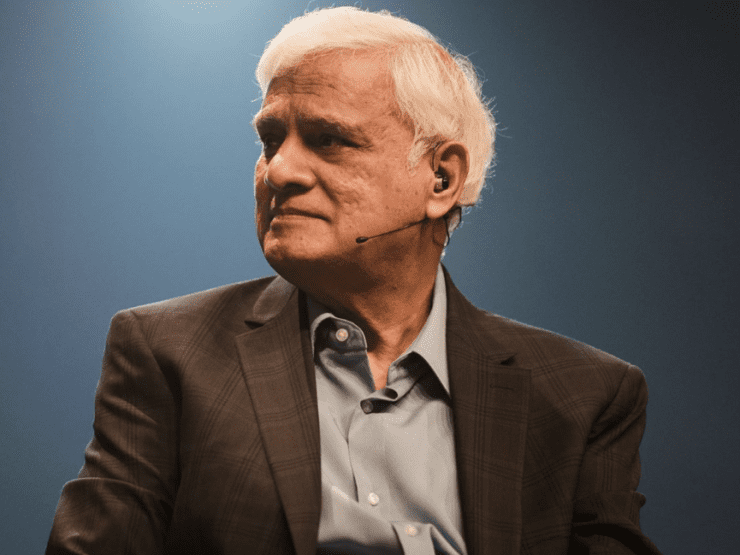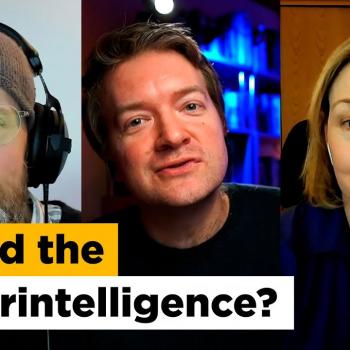
I didn’t want it to be true. But it was true. And now a global ministry has been shipwrecked and the legacy of one of the most influential Christian apologists has been swept away.
I have felt so saddened. Saddened for those close to Ravi whose trust was abused, for the many who believed because of his ministry and have been devastated, and most especially the victims who have suffered horrible spiritual, emotional and sexual abuse, and in the case of Lori Ann Thompson, public defamation at the hands of Ravi and the ministry.
“The heart is deceitful above all things and beyond cure. Who can understand it?” says Jeremiah 17 v 9. That verse has been in my head recently. Not just because of how its speaks to Ravi’s own deceptive heart, but because of the ways that we’re all willing to be deceived.
This is personal
There have been a flood of responses since the independent report laid bare the scale of Ravi’s deceit. They’ve debated how it happened, why it happened, whether RZIM can (or should) recover from this, whether Ravi’s books should be withdrawn, and so on. This isn’t really a blog about any of that. It’s more of a personal response – a ‘mea culpa’ of sorts.
Ravi was one of the pre-eminent Christian apologists in the world. Although I personally never met him or interviewed him for my Unbelievable? show, his posthumous downfall feels very close to home because I have worked closely with the wider team in RZIM.
Shortly after his death in May 2020 I hosted a tribute show to Ravi interviewing key leaders from RZIM. The warm words and anecdotes that were shared then have turned to ashes in our mouths, as have those that were shared by the celebrities and church leaders at his funeral service, live-streamed to millions. We’ve now taken down our own Youtube edition of that show and I’ve added a disclaimer in our podcast archive that the show clearly no longer represents a true picture of Ravi.
Of course, at the time of recording the spa allegations were unknown, but nevertheless, like so many others, I was too quick to give Ravi the benefit of the doubt over those sexting allegations from two years previous. I didn’t ask the awkward questions I should have asked, because, well…I didn’t want it to be true. I wanted Ravi to be the hero of the hour, to have a great legacy, for the work of RZIM to continue strong.
The heart is deceitful above all things
I was wrong, as were many of us who too willingly accepted the narrative he and the organisation put out around the Lori Ann Thompson affair. It was only when the new credible spa allegations came to light in September and the independent report eventually released its full, damning conclusions about Ravi’s predatory and abusive behaviour, that we realised how wrong we were.
None of us saw what was coming, but I should have been more skeptical to start with. For that reason I want to publicly apologise to people like Steve Baughman of ‘Ravi Watch’ and fellow apologist Randal Rauser whose voices I chose to tune out when they were in my timeline asking inconvenient questions about Ravi at the time of his death, while the rest of the world was heaping on adulation.
I had wanted to believe in Ravi the master apologist, family man, and spiritual hero. But our heroes have a habit of letting us down. Now with the truth laid bare, (and perhaps only even a portion of that) I’m left with the question: How can we do better than this?
Ultimately, the person responsible for what happened was Ravi Zacharias, and he will answer to God for the sins against his victims that he took with him to the grave. But the rest of us need to ask ourselves hard questions about the kind of culture that allowed Ravi’s deception to occur. And to make sure it can’t happen again.
Here are five suggestions:
1. We need to be more skeptical
We need to question our heroes. I run a show that involves asking and responding to hard questions from skeptics, but often we’re not skeptical enough of those we admire. We all suffer from ‘confirmation bias’ whether Christian, atheist or something else. To question a person, ideology or doctrine is not to be ‘disloyal’ – it’s about using our mind critically, even when we may not like the answers.
2. We need accountability
No person, no matter how much of a saintly demeanour they project, should be above the structures of accountability in an organisation (as Ravi evidently ended up being). Christian ministries founded on good intentions can collapse because the practical realities of financial, ethical and organisational accountability weren’t built in from the beginning.
3. We need to focus on truth rather than reputation
This sounds obvious, but it isn’t always so obvious when you’re in the thick of running a large, complex, multi-faceted organisation. But the truth will out eventually, as many religious and secular institutions have discovered after trying to cover up abuse rather than bring allegations out into the light. Truth-telling can be an incredibly painful process. So is excising a cancer, but it’s necessary if the body is to survive.
As Jesus memorably put it:
“If your hand causes you to stumble, cut it off. It is better for you to enter life maimed than with two hands to go into hell, where the fire never goes out.” (Matthew 5:30)
4. We need to repent
That means more than just saying sorry, once the facts can no longer be denied. It’s about making genuine reparation to victims. Acknowledging our own complicity in a web of deception. And making the changes that need to be made to ensure a culture that breeds such deception can’t occur again.
5. We need to reform
It feels like there is a reckoning of sorts happening in the Christian church as a plethora of stories of fallen leaders have emerged in recent years.
Why have we built so many ministries based around the charismatic personality of an individual? Why are we so good at creating pedestals for gifted-but-terribly-flawed people to tumble from? What are the idols of success, fame and influence that we have inadvertently come to bow before? Too often it’s back to ‘business as normal’ after a ‘restoration process’ or a ministry name change. But if the heart isn’t changed and the ethos remains the same, then we are doomed to repeat the mistakes of the past.
Learning our lessons
I speak these words to myself as much as anyone else involved in Christian ministry. Jesus won’t be interested ultimately in how many people we reached or how successful our ministry was. He’ll be interested in who we became – whether we grew more into his likeness.
“Lord, Lord, did we not prophesy in your name and in your name drive out demons and in your name perform many miracles?’ Then I will tell them plainly, ‘I never knew you. Away from me, you evildoers!” (Matthew 7:22)
These are stark words from Jesus, but we need to hear them. Because only by coming fully, frankly and honestly to Jesus can our deceitful hearts be cured.
Subscribe to the Unbelievable? podcast
Listen to an Unbelievable? podcast on When Leaders Fall












